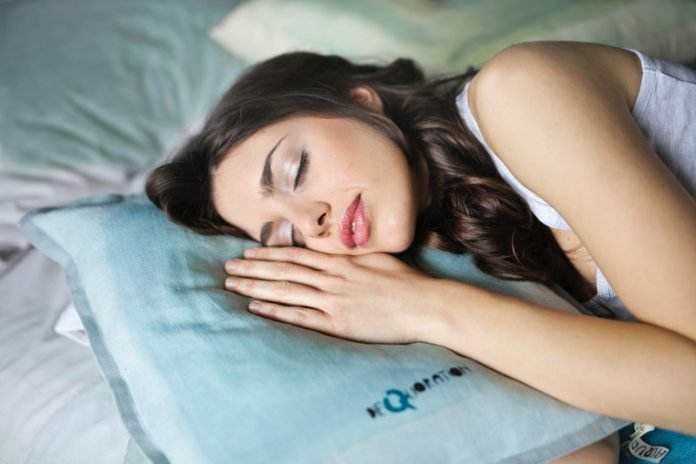
In a new study, researchers found a new method to treat insomnia, the persistent problems falling and staying asleep.
The research was conducted by a team at the Netherlands Institute for Neuroscience and elsewhere.
Insomnia disorder is the second-most common mental health problem and a major risk factor for depression.
Cognitive behavioral therapy for insomnia (CBTi) is the treatment of choice and has successfully been provided through the Internet (ICBTI).
Unfortunately, the intervention is not sufficiently effective for all people that suffer from insomnia.
A less studied type of intervention for insomnia, which might provide additional improvement if effective, is chronobiological treatment.
Chronobiological treatment aims to enhance the entrainment and amplitude of the biological clock by utilizing its sensitivity to, and interaction with, regularly timed bright light, physical activity or body warming.
In the study, the team examined chronobiological treatment and internet-based CBTi in 175 people with insomnia. Participants did not use sleep medication daily nor performed shift work.
The team found that internet-based CBTi increased sleep efficiency by 6.69%.
While at 5 weeks follow up, sleep efficiency was not affected by any chronobiological treatment, a noticeable effect of combining internet-based CBTi emerged after 10 weeks when sleep efficiency increased by 12.89%.
The increase was almost twice the increase seen in participants who had received internet-based CBTi in combination with placebo.
In addition, adding chronobiological treatment to internet-based CBTi resulted in much further benefits after 10 weeks, such as a 23.60% decrease in sleep length and a 64% decrease in wake after sleep.
These findings suggest that adding chronobiological treatment to internet-based CBTi brings benefits that appeared in the follow-up assessment in the sixth week after completing the interventions.
Those that received internet-based CBTi in combination with any active chronobiological treatment better maintained their initial gain in sleep efficiency by 6%, fell asleep more easily by 23 min, had less nocturnal wakefulness by 51 min and slept longer by 32 min.
The lead author of the study is Dekker K.
The study is published in Psychotherapy and Psychosomatics.
Copyright © 2020 Knowridge Science Report. All rights reserved.



